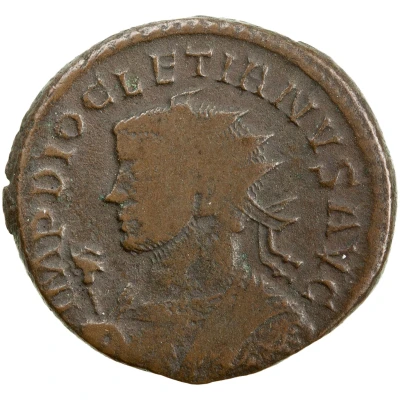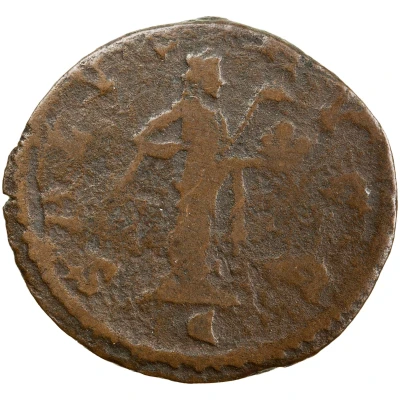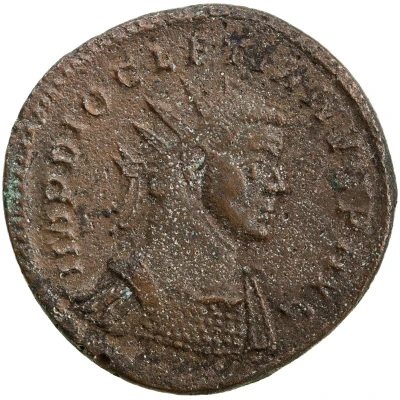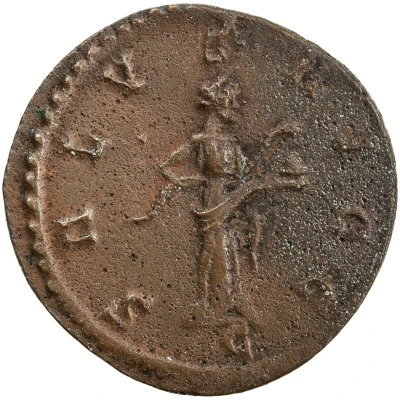


© American Numismatic Society (ANS)
Antoninianus - Diocletianus SALVS AVGG; Salus
291 year| Silver | 4 g | 21 mm |
| Issuer | Rome › Roman Empire (27 BC - 395 AD) |
|---|---|
| Emperor | Diocletian (Gaius Aurelius Valerius Diocletianus) (284-305) Maximian Herculius (Marcus Aurelius Valerius Maximianus) (286-305) |
| Type | Standard circulation coin |
| Year | 291 |
| Value | Antoninianus (1) |
| Currency | Antoninianus, Reform of Caracalla (AD 215 – 301) |
| Composition | Silver |
| Weight | 4 g |
| Diameter | 21 mm |
| Shape | Round (irregular) |
| Technique | Hammered |
| Demonetized | Yes |
| Updated | 2024-10-05 |
| Numista | N#305744 |
|---|---|
| Rarity index | 97% |
Reverse
Salus, draped, standing right, feeding snake held in arms.
Script: Latin
Lettering:
SALVS AVGG
C/-//-
Translation:
Salus Duorum Augustorum.
Health of the two emperors (Augusti).
Comment
Mass varies: 3.23–4.59 g;Example of this type:
American Numismatic Society (ANS)
Source:
Online Coins of the Roman Empire (OCRE)
Interesting fact
The Antoninianus coin, which was issued during the reign of Diocletian (284-305 AD), was a significant departure from previous Roman coins in terms of its design and metallic composition. It was the first Roman coin to feature a portrait of the emperor on one side and a personification of the state (in this case, Salus, or "Salvation") on the other. This innovation marked a shift towards a more humanized representation of the emperor and the state, and paved the way for the more naturalistic and detailed portraits that would become common in later Roman coinage.

